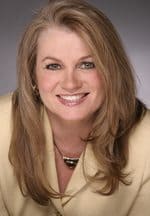Most of the investing public, both individual investors and professionals, have had the majority of their experience in the markets in a bullish bond market. Rates hit a peak of 15.3% in 1981 and from there, trended down to a low of 1.4% in July 2012. While there were periods of time where rates rose for a bit, the overall trend has been down. As rates fall, prices of bonds rise.
If you employed a ladder of bonds, the small periods of fluctuation generally allowed you to roll your bonds as they matured. If rates were attractive you could roll to longer maturities. If rates were unattractive, you could hold shorter maturities waiting for a time to lock in higher rates. However, since 2009, the trend of rates has continued down and any bonds reinvested got lower and lower rates.
Many wise and savvy people from Bill Gross of PIMCO to Louise Yamada of Louise Yamada Advisors have been vocal about warning that the 30 year bond-bull is ending. The timing could not be worse for the 78 million baby boomers who are entering their “golden years” and the generation above them who are often attempting to live on the income generated from their portfolio.
Taper or not…
As a response to the crisis we experienced in 2008, the Fed decided to embark on a path of using monetary policy to attempt to shore up the economy. Quantitative easing (QE)is a way for the central bank to purchase financial assets from commercial banks and other institutions in an attempt to increase the monetary base, theoretically providing stability and liquidity.
The first round labeled QE1 was initiated in December 2008 as the Fed committed to purchasing $600 billion of mortgage securities. In November 2010, QE2 was implemented with the Fed purchasing $75 billion a month of longer term Treasury bonds. In September 2011, Operation Twist started with the Fed purchasing $400 billion of longer term Treasuries while issuing short term bonds. As rates fell, the demand for the short term bonds fell dramatically so in September 2012, QE3 was created. QE3 allowed the Fed to purchase a combination of mortgage bonds and treasuries to the tune of $85 billion per month. This has continued until the present.
There are many skeptics as to how effective monetary policy was for our economy. Certainly, it has not helped job growth. Banks have been restrictive in their lending policies so the money has not really benefitted business owners, consumers or those who could not qualify for a mortgage. The stock market has enjoyed a buoyant market with the S&P increasing 153% since the March 2009 bottom. However, income investors have suffered as the return on their portfolios has continued to shrink. Some income investors have given up on bonds and rotated over to dividend paying stocks, real estate investments and master limited partnership investments.
If the spigot is turned off, the risk of rising rates increases. Rising rates can cause havoc in a fixed income portfolio and could potentially derail the current stock market rally.
Asking for Advice…
This is a challenging market for both the investor as well as the advisor. In order to get the best from your advisor you should ask yourself as well as your advisor some probing questions.
Be Honest with yourself:
We call it 20/20 hindsight but it is always easier to look back and say “I could have, should have, would have”. So while it is easy to see what you might have done differently, you need to be very clear with yourself. What is your real risk tolerance? Do you have enough principal to support your present lifestyle? Are you accounting for inflation in your expenses? Are you accounting for longevity?
Be Honest with your advisor:
There are both good and bad advisors but in order to judge whether you have the right advisor, it is critical to be honest with your advisor. I am biased but I prefer to run a formal financial plan which projects forward the effects of inflation, potential loss of income and thoroughly reviews risk in a client’s personal financial situation.
If you choose not to go that route, then being honest about current expenses, any large expenses you foresee, your capabilities for earning income if you do not have enough savings and what downside risk you are willing to accept is critical to communicate to your advisor in order to get the best advice.
None of us have that magic crystal ball and tailoring portfolios to a client’s needs takes time. Next article we will address good and bad responses from your advisor.
About Kathy A. Boyle
President/Chapin Hill Advisors, Inc.
www.chapinhilladvisors.com
 Kathy Boyle is founder and president of Chapin Hill Advisors, Inc. Chapin Hill Advisors, Inc. provides consulting and planning services for families, family offices, high net-worth individuals, businesses as well as not for profit organizations. Chapin Hill also offers investment advisory services including asset allocation as well implementation of both traditional and alternative investment portfolios.
Kathy Boyle is founder and president of Chapin Hill Advisors, Inc. Chapin Hill Advisors, Inc. provides consulting and planning services for families, family offices, high net-worth individuals, businesses as well as not for profit organizations. Chapin Hill also offers investment advisory services including asset allocation as well implementation of both traditional and alternative investment portfolios.
Kathy is a regular commentator and guest on national television shows such as CNBC, Fox Business Network, NBC’s Nightly News, NY1, Bloomberg radio and personal-finance TV shows. Kathy has also been interviewed extensively for many publications, including The Journal of Financial Planning, Wall Street Journal, Research Magazine, and Investment News.
Kathy serves on the advisory board of the Westchester Land Trust and the advisory council of the NYC Chapter of the American Heart Association and serves on an environment planning committee in Pound Ridge, NY. She is very active in her local community and rescues homeless animals.
Registered Investment Advisory services are offered through Morse Capital Partners in Richmond, VA.
Disclaimer: This information is provided for general information only, and is not intended as personalized investment advice. Reading the above is in no way intended to be a substitute for individualized investment advice, and no conclusions should be drawn from this information regarding any potential investment. All readers should contact their professional investment, legal and tax advisors before entering into any investment or investment agreement. Past performance of any index, market, sector, or investment is not necessarily indicative of future returns. Any index referenced herein references historical results. They are also unmanaged and cannot be invested in directly. Some information in the above is gleaned from third party sources, and while believed to be reliable, is not independently verified. Please contact Kathy Boyle for more information at [email protected].
Trusted & Regulated Stock & CFD Brokers
What we like
- 0% Fees on Stocks
- 5000+ Stocks, ETFs and other Markets
- Accepts Paypal Deposits
Min Deposit
$200
Charge per Trade
Zero Commission on real stocks
64 traders signed up today
Visit Now67% of retail investor accounts lose money when trading CFDs with this provider. You should consider whether you can afford to take the high risk of losing your money.
Available Assets
- Total Number of Stocks & Shares5000+
- US Stocks
- German Stocks
- UK Stocks
- European
- ETF Stocks
- IPO
- Funds
- Bonds
- Options
- Futures
- CFDs
- Crypto
Charge per Trade
- FTSE 100 Zero Commission
- NASDAQ Zero Commission
- DAX Zero Commission
- Facebook Zero Commission
- Alphabet Zero Commission
- Tesla Zero Commission
- Apple Zero Commission
- Microsoft Zero Commission
Deposit Method
- Wire Transfer
- Credit Cards
- Bank Account
- Paypall
- Skrill
- Neteller
What we like
- Sign up today and get $5 free
- Fractals Available
- Paypal Available
Min Deposit
$0
Charge per Trade
$1 to $9 PCM
Visit Now
Investing in financial markets carries risk, you have the potential to lose your total investment.
Available Assets
- Total Number of Shares999
- US Stocks
- German Stocks
- UK Stocks
- European Stocks
- EFTs
- IPOs
- Funds
- Bonds
- Options
- Futures
- CFDs
- Crypto
Charge per Trade
- FTSE 100 $1 - $9 per month
- NASDAQ $1 - $9 per month
- DAX $1 - $9 per month
- Facebook $1 - $9 per month
- Alphabet $1 - $9 per month
- Telsa $1 - $9 per month
- Apple $1 - $9 per month
- Microsoft $1 - $9 per month
Deposit Method
- Wire Transfer
- Credit Cards
- Bank Account



